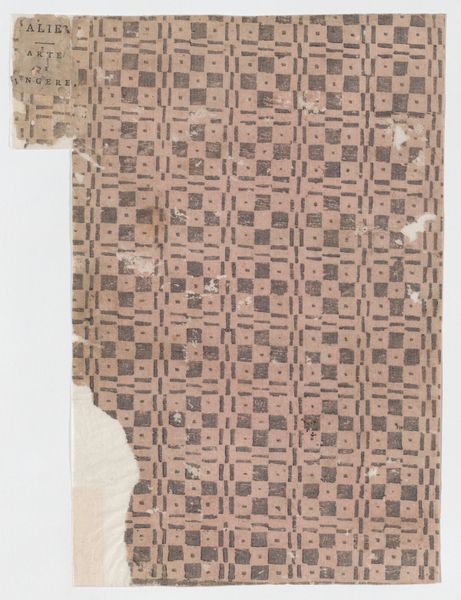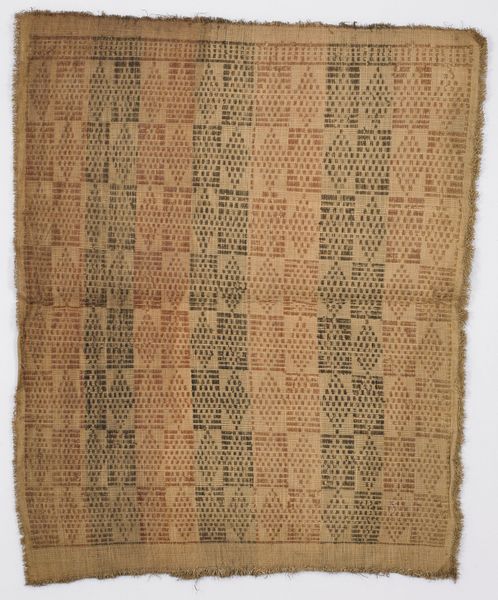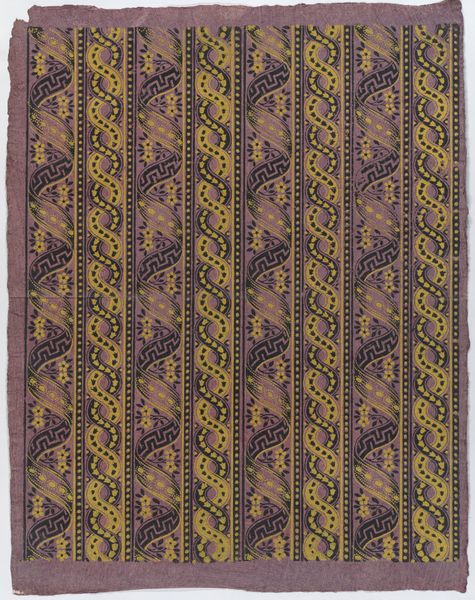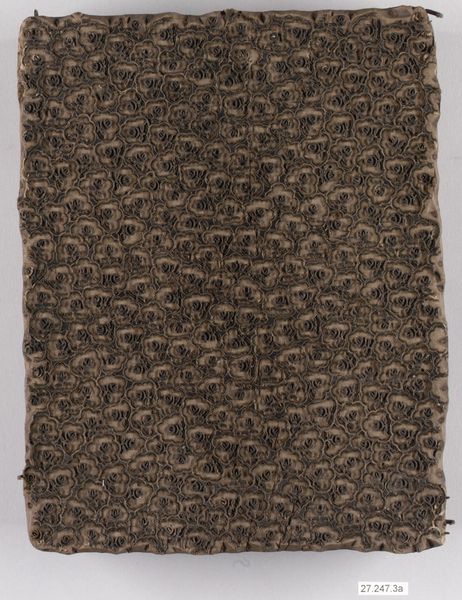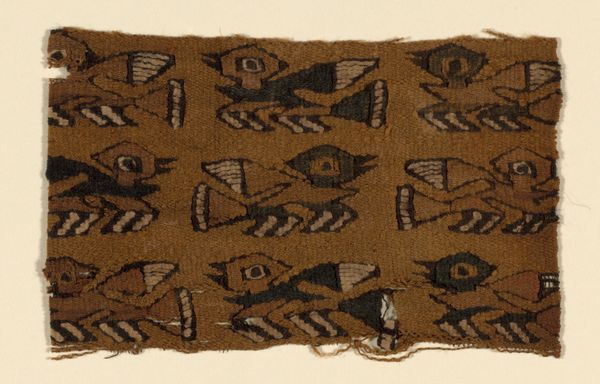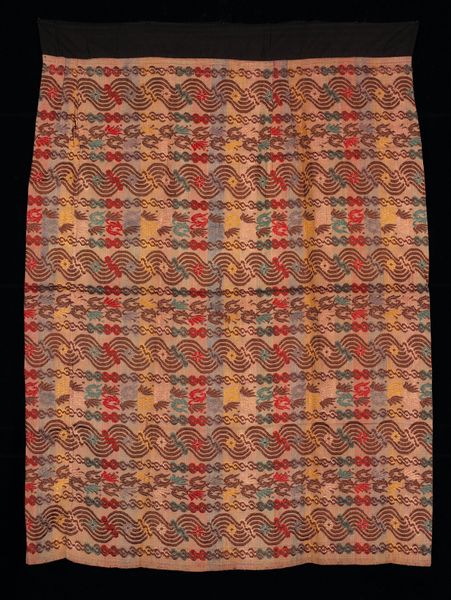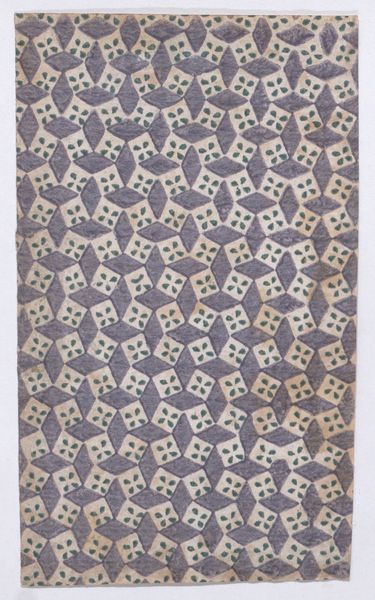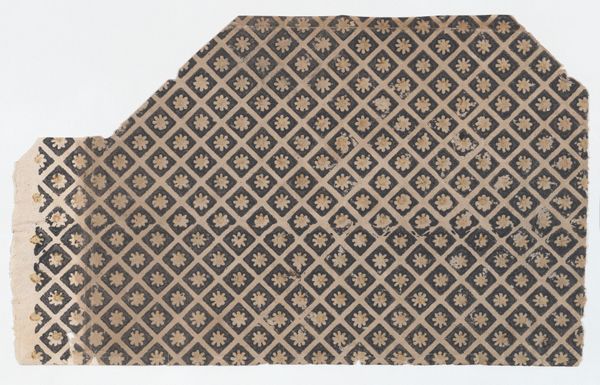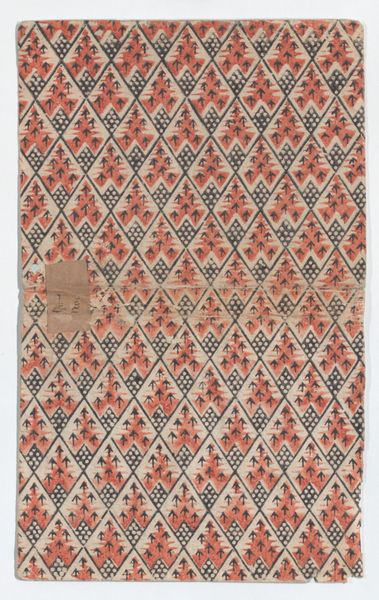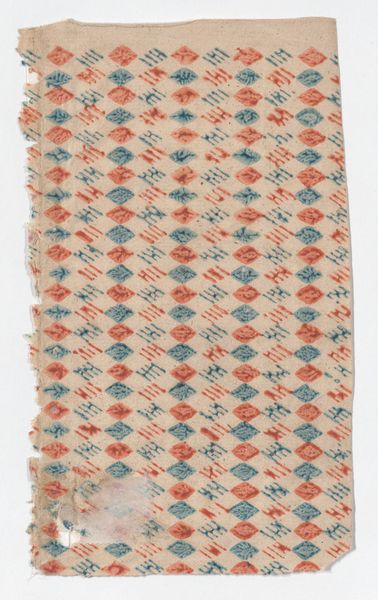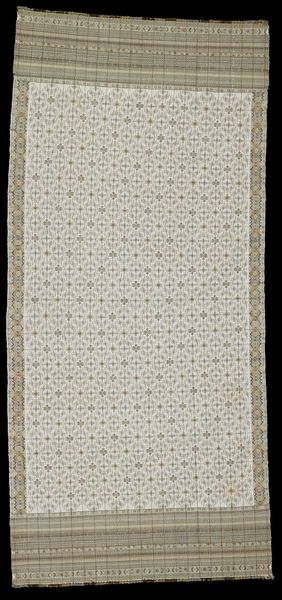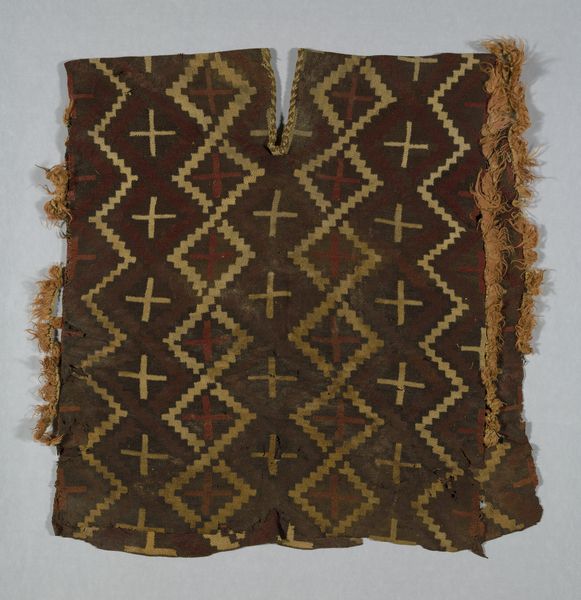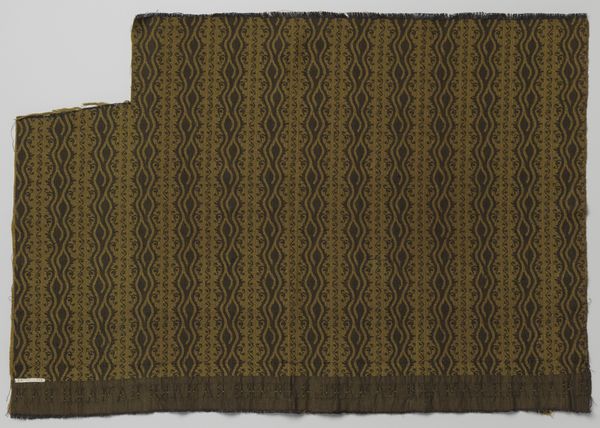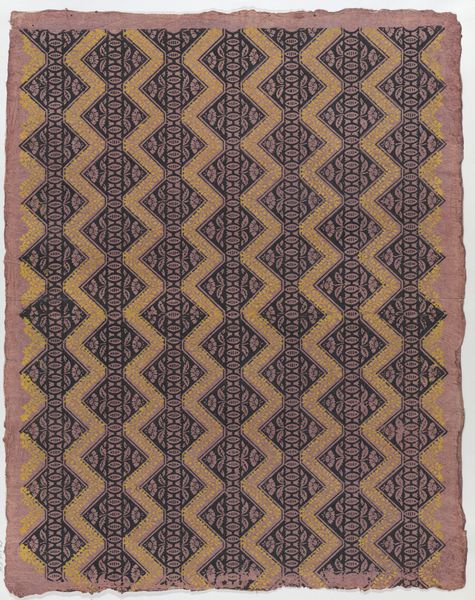
weaving, textile, cotton
#
asian-art
#
weaving
#
textile
#
geometric pattern
#
abstract pattern
#
organic pattern
#
geometric
#
repetition of pattern
#
china
#
cotton
Dimensions: 10 3/8 × 27 3/4 in. (26.35 × 70.49 cm)
Copyright: Public Domain
Editor: This is a late 19th-century cotton textile, a panel from a bed cover made by Tujia artisans. The repeated geometric patterns are beautiful, but the condition makes it feel fragile. What stories do you see woven into this piece? Curator: It is striking, isn't it? This xilankapu offers us a powerful insight into Tujia women's lives. While seemingly just a decorative object, these textiles functioned as powerful statements of cultural identity, especially considering the historical context of marginalization and cultural suppression faced by the Tujia people within the broader Chinese socio-political landscape. Notice the intricate geometric designs. What do they evoke for you? Editor: I hadn’t thought of them as statements, more like…ornamentation? They feel almost modern, yet so old. They do seem to have repeated diamond shapes with some organic qualities. Curator: Exactly. These designs weren't merely aesthetic choices, but a visual language. They encode cosmological beliefs and historical narratives central to Tujia identity. Think about the act of weaving itself – a communal activity often passed down through generations of women, strengthening social bonds and preserving cultural memory. So, in a sense, these textiles served as quiet acts of resistance, maintaining a distinct cultural identity. How does considering this history change how you perceive the object? Editor: It gives the geometric patterns a voice. I’m seeing the bed cover panel now as a tangible form of cultural resilience, rather than simply as an artifact. Curator: Precisely. And it challenges us to look beyond the surface of art, and to consider the complex social and political realities woven into its very fabric. The quiet stories told, despite everything. Editor: Thank you for pointing that out. I will definitely carry this lens of cultural context with me.
Comments
minneapolisinstituteofart about 2 years ago
⋮
Tujia is the sixth largest ethnic minority in China. Tujia women are best known for their heavy, woven bedcovers known as Xilankapu (“bedcover with local flowers”), which were often part of their trousseau. Most Tujia Xilankapu bedcovers are constructed of three woven panels sewn together, usually with matching borders on the top or bottom and occasionally on all four sides. Made of a cotton weave with natural plant dyes, they are often designed in a diamond pattern filled with dense geometric shapes in indigo and other colors.
Join the conversation
Join millions of artists and users on Artera today and experience the ultimate creative platform.
